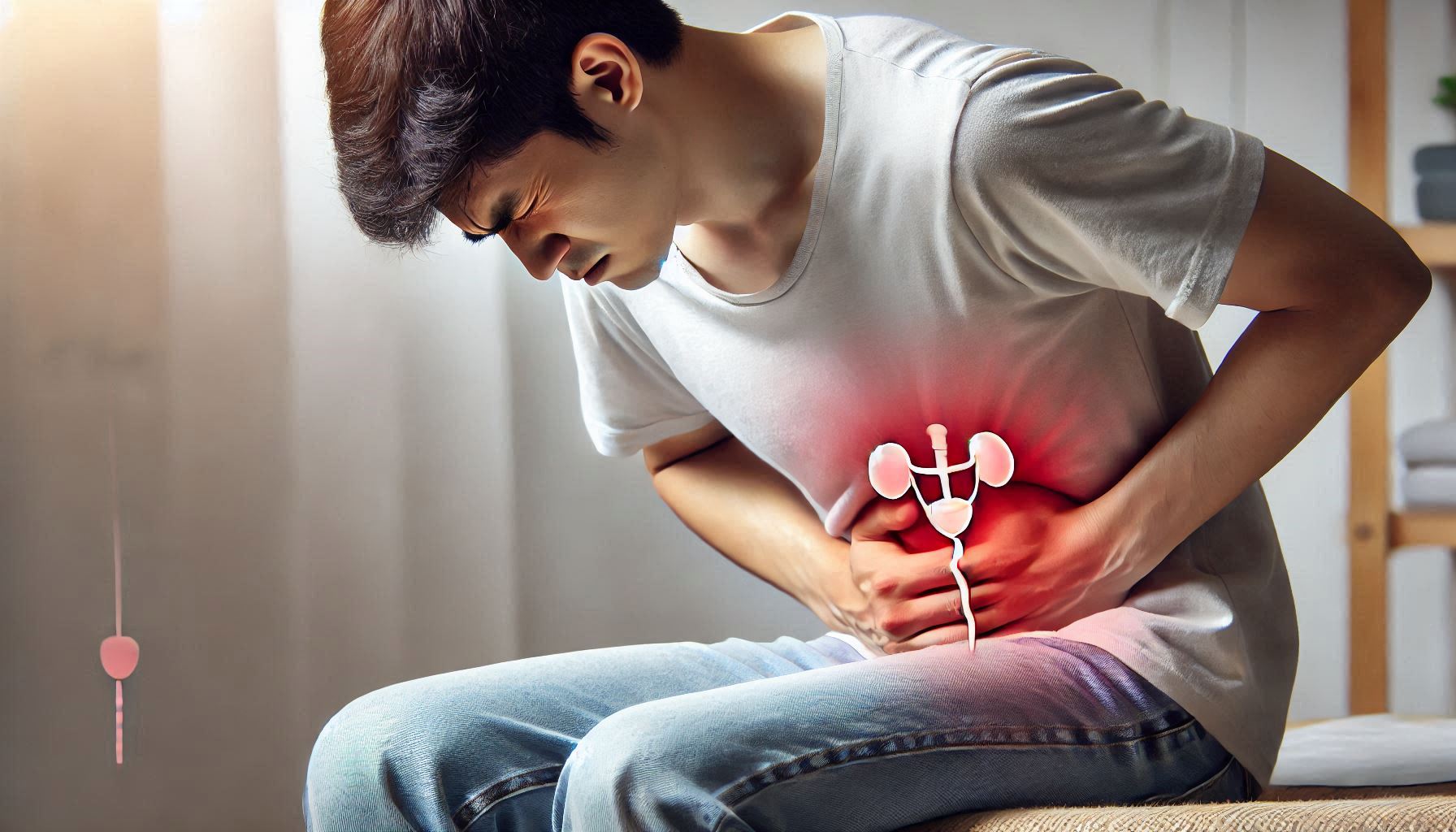Shopping Cart
CloseNo products in the cart.
Filter
closeConquering UTIs: Your Complete Guide to Prevention, Recovery, and Lasting Relief
Author: ItHurts.com
A Comprehensive Talk on Conquering UTIs

Understanding the Basics:
Chest pain can be a distressing experience, often triggering fears about serious underlying conditions such as heart disease. While seeking immediate medical attention for unexplained or severe chest pain is essential, many individuals experience recurring or chronic chest pain that is not related to life-threatening issues. For these cases, holistic treatments can offer effective relief and long-term management. This article explores various holistic methods to ease chest pain, focusing on natural remedies, lifestyle changes, and alternative therapies.
What Is a UTI?
A urinary tract infection is an infection in any part of your urinary system, which includes the kidneys, ureters, bladder, and urethra. Most UTIs occur in the lower urinary tract (the bladder and urethra). While women are more prone to UTIs due to their anatomy, men, children, and older adults can also develop these infections.
Types of UTIs
- Cystitis: Infection of the bladder, often causing discomfort during urination and frequent urges to urinate.
- Urethritis: Infection of the urethra, usually resulting in a burning sensation during urination.
- Pyelonephritis: A more severe infection affecting the kidneys, often accompanied by fever, back pain, and nausea.
Symptoms of a UTI
Recognizing the symptoms early can lead to quicker treatment and less discomfort. Common symptoms include:
– A burning sensation during urination.
– Frequent and intense urges to urinate, even when the bladder is empty.
– Cloudy, dark, or strong-smelling urine.
– Lower abdominal pain or pressure.
– Blood in the urine.
In more severe cases, especially with kidney infections, symptoms can include:
– Fever and chills.
– Back or side pain (near the ribs).
– Nausea and vomiting.
Causes of UTIs
UTIs occur when bacteria, usually *Escherichia coli* (E. coli), enter the urinary tract through the urethra and begin to multiply. Common causes include:
– Poor hygiene: Wiping back to front after using the toilet can transfer bacteria to the urethra.
– Sexual activity: Increases the risk of introducing bacteria into the urinary tract.
– Holding urine: Retaining urine for extended periods allows bacteria to grow.
– Weakened immunity: Makes it harder for the body to fight infections.
– Catheter use: Increases the risk of bacterial introduction.
– Postmenopausal changes: Decreased estrogen can alter the urinary tract lining, increasing susceptibility.
How to Recover from a UTI
Recovering from a UTI involves prompt treatment, symptom management, and adopting preventive measures to avoid recurrence. Here’s a step-by-step guide:
1. Seek Medical Treatment
– Consult a healthcare provider : They will typically perform a urine test to confirm the infection and prescribe antibiotics tailored to the specific bacteria.
– Complete the prescribed antibiotics : Even if you feel better, finishing the full course ensures all bacteria are eradicated.
2. Manage Symptoms
– Stay hydrated : Drinking plenty of water flushes out bacteria from the urinary tract. Aim for at least 8-10 glasses daily.
– Use a heating pad : Applying heat to your lower abdomen can alleviate pain and cramping.
– Try over-the-counter pain relievers : Medications like ibuprofen or acetaminophen can reduce discomfort.
3. Adopt Home Remedies
While antibiotics are essential for treating bacterial UTIs, these remedies can support your recovery:
– Cranberry products : Cranberry juice or supplements may help prevent bacteria from adhering to the bladder wall.
– Probiotics: Replenish good bacteria, especially after antibiotic use, to restore balance in your microbiome.
– D-mannose : A natural sugar found in fruits that may prevent bacterial attachment in the urinary tract.
4. Practice Good Hygiene
– Wipe front to back : To prevent bacterial transfer.
– Urinate after intercourse : Flushes out bacteria introduced during sexual activity.
– Avoid irritants: Steer clear of harsh soaps, feminine sprays, and douches.
5. Rest and Recovery
– Get plenty of rest to allow your body to focus on healing.
– Avoid activities that could irritate the bladder, such as caffeine and alcohol consumption.
Preventing UTIs: Your Long-Term Strategy
Preventing UTIs is just as important as treating them. By adopting these practices, you can significantly reduce your risk:
- Stay Hydrated
Drink plenty of fluids daily to keep your urinary system flushed and bacteria-free.
- Maintain Proper Hygiene
– Shower instead of bathing to avoid exposure to bacteria.
– Wear breathable, cotton underwear to reduce moisture buildup.
– Change out of wet clothes promptly, especially after swimming or exercise.
- Support Your Immune System
– Eat a balanced diet rich in fruits, vegetables, and lean proteins.
– Manage stress and prioritize sleep for optimal immune function.
- Regular Health Checkups
If you experience frequent UTIs, consult your doctor about further testing to rule out underlying conditions like kidney stones or diabetes.
When to See a Doctor
While mild UTIs may occasionally resolve on their own, seeking medical care is crucial in the following cases:
– Symptoms persist or worsen after a few days.
– Fever, chills, or back pain develop.
– Blood appears in the urine.
– You experience frequent or recurrent UTIs (more than three in a year).
For pregnant individuals or those with compromised immune systems, prompt medical attention is even more critical to prevent complications.
Debunking UTI Myths
Myth 1: Only women get UTIs.
Fact: While more common in women, men and children can also develop UTIs.
- Myth 2: Drinking cranberry juice cures UTIs.
Fact: Cranberry juice may help prevent UTIs but is not a substitute for antibiotics in treating infections.
- Myth 3: UTIs always cause obvious symptoms.
Fact: Some UTIs, especially in older adults, may present without typical symptoms and require urine tests for diagnosis.

Conclusion: A Holistic Path to Comfort
Urinary tract infections can disrupt your daily life, but with timely treatment, self-care, and preventive measures, recovery is within reach. Stay proactive about your urinary health by maintaining hydration, practicing good hygiene, and consulting a healthcare provider when needed.
Your Call to Action: If you suspect a UTI, don’t wait—consult your doctor for diagnosis and treatment. For ongoing urinary health, consider integrating preventive strategies like probiotics or cranberry supplements into your routine. By prioritizing your well-being, you can conquer UTIs and enjoy a healthier, more comfortable life.
ItHurts.com is your ally in your endeavor to live pain-free. We offer guidance, resources, and community support to address chronic pain, emotional stress, and physical discomfort. Discover insightful articles, product reviews, recommendations and shared experiences to empower your journey to better health. Remember, if it hurts, we can help!
Related Products
No posts found!
Related Blogs
No posts found!
